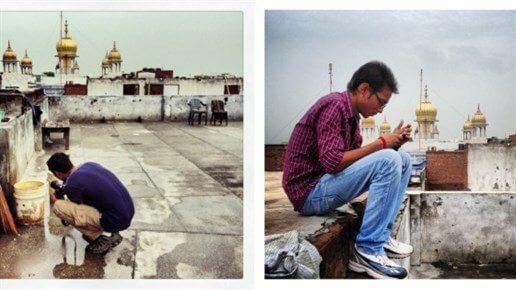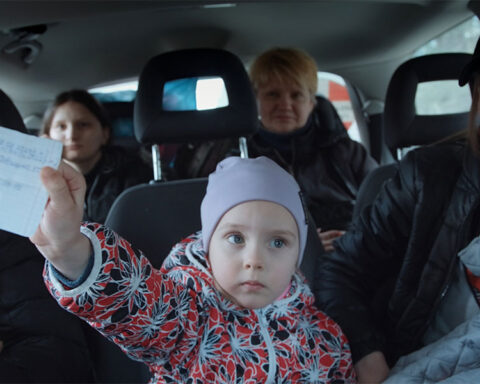Diversity is a major part of the Hot Docs Canadian International Documentary Film Festival and it’s no wonder, with almost 200 films being screened from Canada and around the world. The festival offers a unique opportunity to shed light on diverse stories and storytellers alike. Here is the first instalment of NCM’s series highlighting standout films and filmmakers from this year’s festival.
Filmmaker Spotlight | Noemi Weis, Milk
Noemi Weis is the producer, director and writer of Milk, a documentary about the commercialization of childbirth and infant feeding, which premiered at the Hot Docs Canadian International Documentary Film Festival in Toronto this week.
In 1998, Weis created a film production company, Film Blanc, and has been involved in making documentaries on social justice and women’s issues throughout her career.
In creating Milk, Weis travelled to 35 cities in 11 countries to bring a global perspective and voices of women from diverse communities to her film.
In creating Milk, Weis travelled to 35 cities in 11 countries to bring a global perspective and voices of women from diverse communities to her film.
Weis came to Canada from Argentina in her late teens for, “a year of adventure,” and made it her home. Argentina at that time, “was under a lot of oppression as it had a military government,” and Weis loved that, “you could talk to anyone in Canada and there was freedom of expression.”
In this interview with New Canadian Media Weis talks about her motivation in making Milk and opens up about her immigrant roots in Canada.
Milk screens at 11 a.m. on April 29 inside the Isabel Bader Theatre (93 Charles St. W.) in Toronto.
—————
Film Review | English India
Colonial rulers brought English to India. In 1947, the British left, but the language stayed. Through a focus on tourism and tourist guides in Delhi and Agra, English India explores how English remains important for communication in India to the extent that it can be considered an ‘Indian language’.
 English India refrains from a linear narrative; it is built through “chapters” that introduce new people, places or ideas. This travelogue approach turns its audience into tourists who meet different people and visit various places.
English India refrains from a linear narrative; it is built through “chapters” that introduce new people, places or ideas. This travelogue approach turns its audience into tourists who meet different people and visit various places.
The audience will meet shopkeepers, rickshaw pullers and tour guides that speak English with varying levels of proficiency. English, as the most commonly understood language, at least to some extent, by both international and domestic tourists, has become the language of survival for them.
The film’s most memorable participant, and perhaps also the one with the most screen time, is an outspoken tour guide who claims to be able to speak 70 languages. Hearing him speak about Delhi’s Red Fort, and its adjacent monuments, provides a good peak at the experience of visiting with a tour guide.
For its musical track, English India taps into renditions of Hindi film songs and live music by uniformed brass bands, which, like the English language, are a legacy of colonialism that continued to flourish post-independence.
In fact, his splashy take on history is missed later on in the film when the mechanized tone of an audio-tour app, which is all set to replace the human guides, is heard.
For its musical track, English India taps into renditions of Hindi film songs and live music by uniformed brass bands, which, like the English language, are a legacy of colonialism that continued to flourish post-independence.
The film’s highlight and biggest strength is the camera work by Mrinal Desai, which takes viewers to the narrow lanes of Old Delhi and captures its various hues. If drama or twists in the plot is the desire, English India will disappoint, but if audience members give in to the flow of visuals, they will surely be left craving rumili roti, kababs and jalebi – street foods of Old Delhi.
English India screens at 6:45 p.m. on April 28 inside the TIFF Bell Lightbox 4 (350 King St. W.) and at 1:45 p.m. on April 29 inside the Scotiabank Theatre 7 (259 Richmond St. W.) in Toronto.
Shazia Javed is a writer, photographer and filmmaker. All week long, New Canadian Media will feature her ongoing coverage of diverse films and filmmakers at this year’s Hot Docs Canadian International Film Festival.




